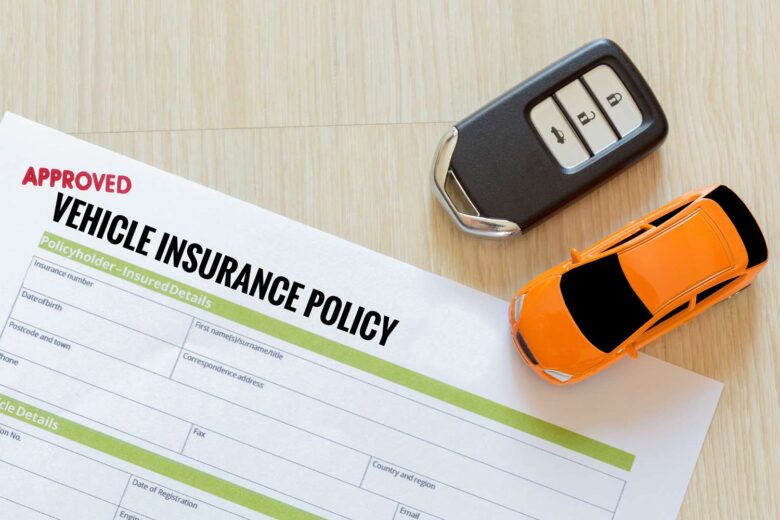Navigating car insurance can be a complex process, especially when determining how long you can remain on your parents’ policy. In Australia, there are several key factors that influence this decision. Understanding these can help you make informed choices about your car insurance needs. Let’s delve into these factors with clarity and simplicity.
Introduction to Car Insurance in Australia

In Australia, car insurance is a critical component of owning and operating a vehicle. It not only provides financial protection against accidents, theft, and other damages but also is a legal requirement. Typically, young drivers start by being listed on their parents’ car insurance policy, which can be a cost-effective way to obtain coverage.
However, as young drivers grow older, the question arises: how long can they stay on their parents’ car insurance? The answer isn’t always straightforward, as it depends on various factors, including the insurance provider’s policies, the age of the child, and their driving record.
Understanding Policyholder Eligibility
Firstly, it’s important to understand who can be a policyholder. In Australia, car insurance policies are generally held by the vehicle’s owner. Parents often list their children as additional drivers on their policy. This arrangement is typically allowed as long as the child lives at the same address as the policyholder and the insurer is informed about the additional driver.
However, eligibility can change over time. Insurers may have specific rules regarding the age at which an additional driver needs to obtain their own policy. It’s crucial to check with your insurer to understand their particular requirements.
Age Considerations

Age is a significant factor in determining how long you can stay on your parents’ car insurance. Most insurance companies in Australia allow children to be listed on their parents’ policy without age restrictions as long as they reside at the same address. However, once children move out or reach a certain age, they may need to secure their own policy.
It’s worth noting that staying on a parent’s policy might not always be the most cost-effective option, especially as you get older. Insurance premiums are calculated based on risk, and younger drivers are often considered higher risk.
Independence and Moving Out
Gaining independence is a milestone, and moving out of the family home is a significant part of this process. When you move out, you’re establishing a separate residence, which typically means you’ll need your own car insurance policy.
Insurance companies usually require that all drivers in a household be listed on a policy to ensure proper coverage. If you’re no longer living with your parents, you’re not part of their household for insurance purposes, necessitating your own policy.
Financial Considerations

Staying on your parents’ car insurance can be financially advantageous for young drivers. Since insurance premiums for young drivers can be high due to their inexperience, being on a parent’s policy can result in lower costs.
However, it’s essential to consider the long-term financial implications. Building your own insurance history can be beneficial, and you may qualify for discounts as you establish a record of safe driving under your own policy.
The Impact of Driving Records
Your driving record plays a pivotal role in car insurance considerations. If you have traffic violations or accidents on your record, it could impact the premiums of your parents’ policy.
In some cases, if a young driver’s record becomes too risky, an insurer may not allow them to remain on their parents’ policy. Conversely, a clean driving record can be advantageous for staying on a parent’s policy longer.
Insurance Policy Terms and Conditions

Each car insurance policy comes with its own set of terms and conditions. These are the rules that policyholders agree to when they purchase coverage. It’s vital to read and understand these terms, as they will outline the specifics of who can be covered and under what circumstances.
For instance, some policies may have explicit stipulations about additional drivers, including age limits or restrictions based on driving history. Always review these details to ensure compliance with your policy.
Shopping for Your Own Policy
There comes a time when shopping for your own car insurance becomes necessary. This might be due to age, moving out, or simply wanting to establish your own insurance history. When this time comes, it’s important to compare different policies and providers to find the best fit for your needs.
Using resources like car insurance comparison sites can help you find competitive rates and coverage options tailored to your individual circumstances.
Navigating the Transition
The transition from being insured under your parents’ car insurance policy to holding your own can be a nuanced journey, requiring careful consideration of several factors. It’s not just about reaching a certain age or hitting a milestone; it’s about assessing your individual situation and the evolving landscape of car insurance requirements.
For young Australian drivers, the decision to shift to their own car insurance policy often coincides with significant life changes, such as starting a full-time job, purchasing their own vehicle, or even getting married. These events naturally lead to a reassessment of one’s financial and insurance needs. It’s not merely about independence; it’s about the appropriateness of coverage. The right car insurance policy should reflect your current lifestyle, driving habits, and financial independence.
It’s also worth considering the legal implications. In the event of an accident, having the correct insurance policy is paramount. If you’re no longer eligible to be on your parents’ policy due to your circumstances, any claims made could be void, leaving you exposed to significant financial liability. Thus, ensuring that you are adequately covered under your own policy is not just a matter of compliance, but also of financial security.
The Role of Life Events

Life events can significantly impact your insurance status. Events such as getting married, buying a new car, or starting a new job might necessitate getting your own policy. These life changes often mean new responsibilities and different insurance needs.
It’s important to assess your car insurance situation whenever you experience a significant life event to ensure that your coverage is appropriate and up-to-date.
Conclusion: Making the Right Choice
Deciding when to transition from your parents’ car insurance to your own policy is a personal decision that depends on multiple factors. Consider your age, financial situation, driving record, and life events when making this choice. Remember, staying informed and reviewing your options regularly will help you make the best decision for your circumstances.
In the end, whether you remain on your parents’ policy or venture out with your own, the goal is the same: to have reliable car insurance that provides peace of mind and financial protection on the road.

